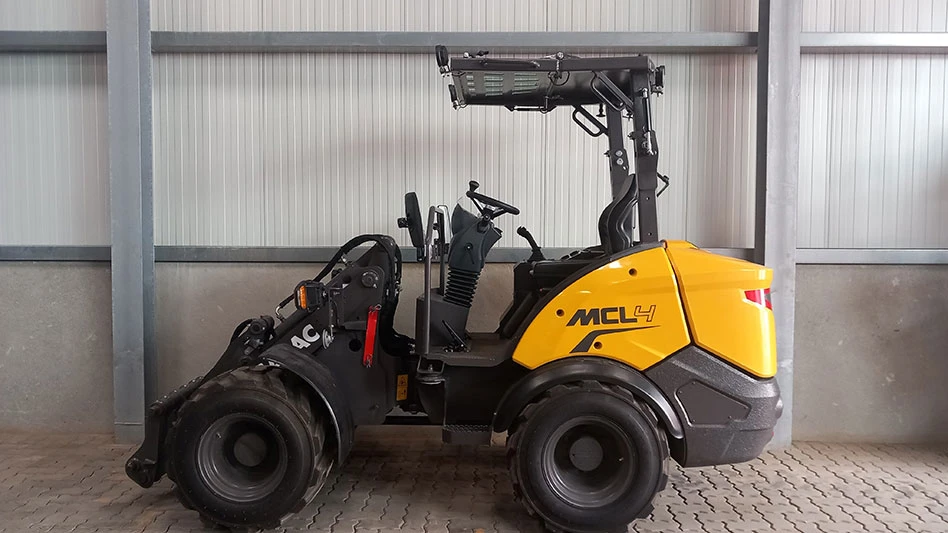
Photo courtesy of Mecalac North America
Mecalac North America, a Norfolk, Massachusetts-based designer, manufacturer and distributor of compact construction equipment, has launched a foldable-canopy version of its MCL compact loader line, with models including the MCL2, MCL4, MCL6 and MCL8.
The foldable-canopy MCL loaders have been designed for use in landscaping and especially agriculture applications, the company says, with a quick-folding canopy that allows operators to leverage the loaders’ benefits in areas with limited overhead clearance.
“Space can come at a premium in some work sites, but that doesn’t mean productivity must be sacrificed,” says Peter Bigwood, general manager for Mecalac North America. “Engineering compact loaders with a folding canopy gives our customers an efficient option to thrive in areas not previously reachable with similar equipment.”
The MCL loaders are compact with a folding canopy that allows users to work in areas inaccessible by traditional, larger loaders. The loaders are equipped with hydraulic and maneuverability options, M-Drive and speed control. With M-Drive, the engine speed can be controlled independently of travel speed, allowing power and hydraulic flow to be adapted to best suit the job at hand. Speed control, a feature available on the MCL6 and MCL8 models, allows operators to set the maximum travel speed from 1 mph to the max speed of 19 mph.
Operators can fold down the canopy by removing a pin on each column and pushing the roof back, reducing the machine’s height by as much as a foot to less than 6.6 feet, allowing them to drive in areas with limited clearance, operate indoors and navigate under carports and garage doors.
MCL loaders can accommodate a range of attachments, including buckets, grapple forks, pallet forks and shredders. An extended boom enhances material handling productivity.
Each machine has a 45-degree articulation that keeps the front wheels traveling in the same path as the rear wheels while driving. A 10-degree oscillation allows for a strong follow-up and maximum traction wherever the machine might travel, including on uneven ground, Mecalac says.
Latest from Construction & Demolition Recycling
- Nucor still chasing 2024 profit levels
- Deadline extended: ‘C&DR’ seeks industry participation for 2025 Largest C&D Recyclers List
- Algoma Steel seeks government funding
- US Senate backs reduced cuts to EPA
- US EPA offers brownfields-related funding
- Sky Quarry seeks crowdfunding support
- Caterpillar releases the new Cat 980 GC Wheel Loader
- NAPA leaders participate in USDOT roundtable





